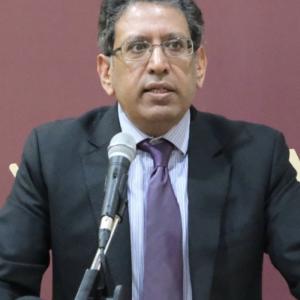Structural constraints to public goods provision in Punjab
Shrines occupy a prominent place in the religious, cultural and political life of South Asia. The shrines and their guardians (commonly described as pirs) have traditionally acted as important nodes of power, serving as intermediaries between the ruler and subject. A large body of literature has studied their impact on religious and political environment (a selected list includes: Aziz (2001), Ansari (1992), and Gilmartin (1984)). There is virtually no systematic research, however, on how shrines shape regional patterns of development. This project offers a first attempt in this regard.
Compiling a unique database on shrines across the different tehsils of Punjab, we empirically explore the association between the presence of shrines and literacy. Our results demonstrate a non-linear impact of shrines per capita: shrines situated in tehsils closer to the river have a differential impact on literacy than those in tehsils farther from the river. Tehsils with riverine shrines tend to have systematically lower literacy rates. We show that this negative effect of riverine shrines on literacy is primarily mediated through politics. Moreover, shrines considered important in the colonial era are more likely to select into politics in post-partition Punjab. We argue that the greater presence of shrines in riverine tehsils produces a confluence of three resources - religion, land and politics - that together constitute a powerful structural inequality with potentially adverse consequences for development.
The first research output from this project, ‘Religion, Land and Politics: Shrines and Literacy in Punjab’ can be accessed here: http://ebrary.ifpri.org/cdm/ref/collection/p15738coll2/id/129245.
This project is funded by International Food Policy Research Institute and USAID under its competitive grants programme (CGP), which is run jointly with the Planning Commission of Pakistan.

